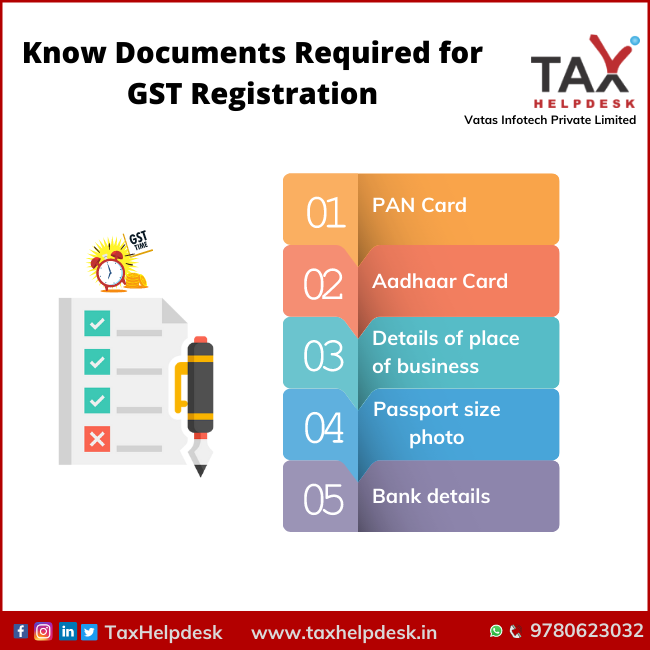Contrast and Choose the most effective GST Registration Services in Singapore for Your Needs
Contrast and Choose the most effective GST Registration Services in Singapore for Your Needs
Blog Article
Throughout: The Ultimate Roadmap to GST Registration for Services Looking For Financial Stability
Browsing the intricacies of Goods and Provider Tax Obligation (GST) enrollment is a vital step for organizations aiming for monetary security. From recognizing the essential principles of GST to conforming with post-registration standards, the procedure can seem daunting in the beginning look. However, damaging down the roadmap right into manageable steps can enhance the enrollment journey for services aiming to enhance their monetary standing. Allow's discover the vital elements that make up this utmost roadmap and uncover just how each stage adds to laying a strong structure for financial success.
Recognizing GST Fundamentals
Delving right into the basic principles of Goods and Solutions Tax Obligation (GST) is important for obtaining an extensive understanding of its effects on businesses and the economic situation. Input Tax Obligation Credit Rating (ITC) is a substantial feature of GST, permitting services to assert credit for taxes paid on inputs, decreasing the overall tax obligation worry. Understanding the fundamentals of GST is vital for businesses to comply with tax regulations, handle their finances successfully, and add to the country's financial development by getting involved in a transparent tax obligation system.
Qualification Criteria for Enrollment
To register for GST, organizations must fulfill certain qualification criteria developed by the federal government. The key qualification requirement is that any type of company associated with the supply of products or services with a yearly aggregate turnover over the threshold limit established by the authorities have to sign up for GST. As of the current guidelines, the threshold restriction for GST registration is a yearly aggregate turn over of 40 lakhs for companies running within a state, except for special category states where the limitation is 20 lakhs. Furthermore, specific companies are required to register for GST regardless of their turn over, such as interstate vendors, laid-back taxable persons, and businesses accountable to pay tax under the reverse cost system. It is important for services to thoroughly analyze their turnover and purchase kinds to identify their GST registration obligations accurately. Failing to register for GST when eligible can lead to penalties and legal effects, making it crucial for businesses to stick to the defined qualification standards.
Documents Needed for Enrollment
Having satisfied the qualification criteria for GST registration, businesses need to now ensure they have the requisite files in area to proceed with the registration procedure effectively. The files needed for GST registration generally consist of evidence of organization constitution, such as collaboration act, registration certification, or unification certification for various types of businesses. Additionally, companies need to offer papers developing the principal place of company, such as a rental arrangement or electrical power costs.
Step-by-Step Registration Process
Starting the GST enrollment process includes a series of organized steps to guarantee a seamless and certified registration for organizations. The first step is to see the GST portal and submit the registration kind with precise information of the business entity. Following this, the applicant receives a Short-term Referral Number (TRN) which is utilized to resume the application process if it's not completed in one go.
Following, all required records based on the checklist supplied by the GST portal demand to be uploaded. These documents typically consist of evidence of organization enrollment, address and identity evidence of marketers, economic declarations, and company entity's frying pan card.

Post-Registration Compliance Standards

Final Thought
Finally, companies looking for economic stability should recognize the fundamentals of GST, meet qualification standards, gather needed files, follow the detailed registration process, and abide by post-registration guidelines - Best GST registration services in Singapore. By sticking to these steps, organizations can guarantee conformity with tax obligation regulations and maintain economic security over time
In addition, particular organizations are needed to sign up for GST regardless of their turnover, such as interstate suppliers, laid-back taxable individuals, and businesses accountable to pay tax under the reverse cost mechanism.Having actually fulfilled the qualification standards for GST registration, companies must currently guarantee they have the requisite files in place to proceed with the registration procedure efficiently. The records required for GST registration usually consist of proof of organization constitution, such as partnership act, registration certification, or unification certification for different kinds of companies. In Check This Out addition, businesses require to give records establishing the principal place of business, such as a rental agreement or power costs.Commencing the GST registration process involves a collection of organized steps to make sure a certified and smooth registration for services.
Report this page